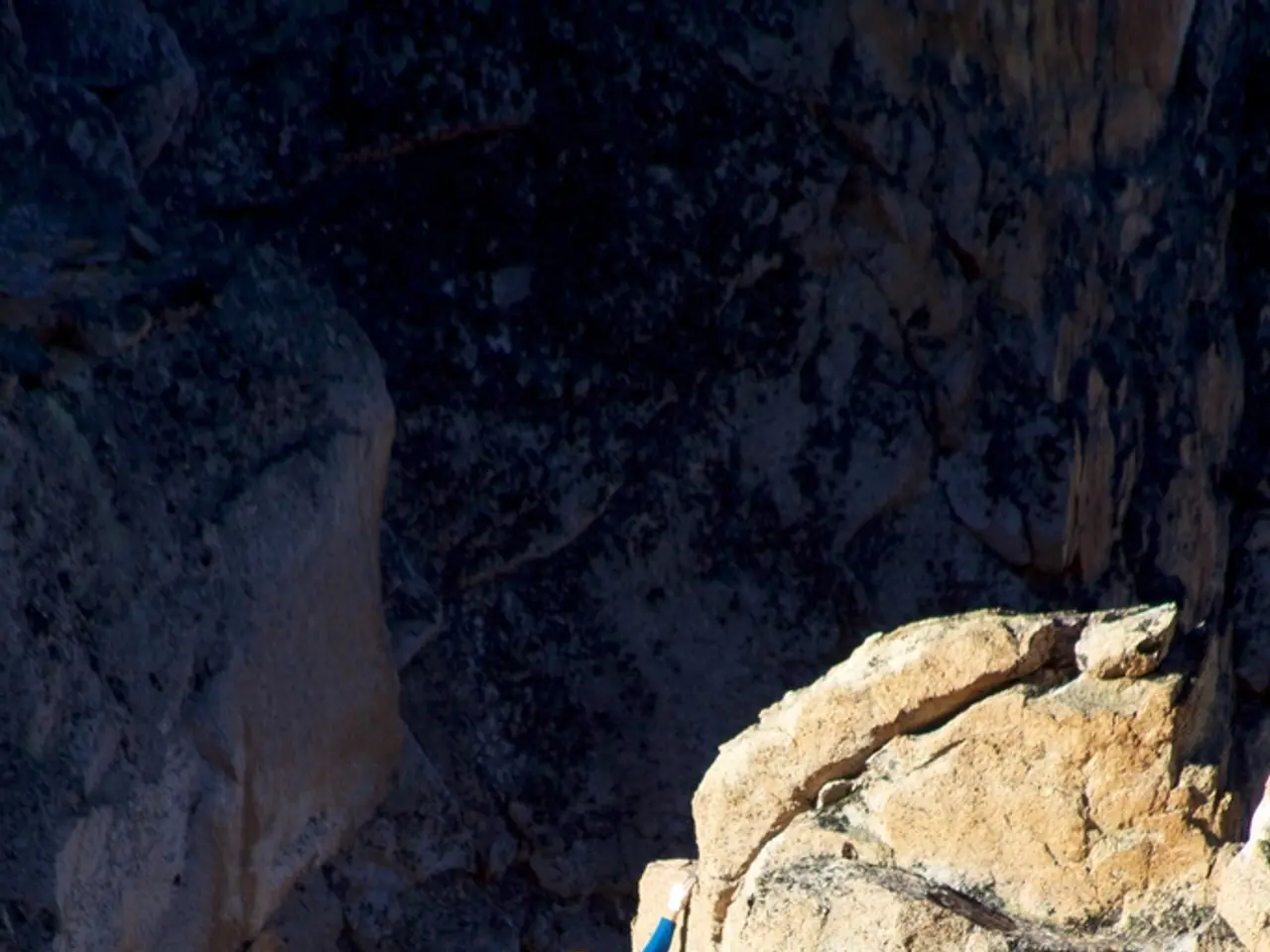Climbers' negligence draws intense criticism from mountain enthusiasts - Mountain ascenders express growing concerns over escalating disregard for safety among climbers in the Alps
In the breathtaking landscapes of the Alps, the beauty and thrill of hiking can sometimes be overshadowed by the consequences of reckless behaviour. A growing trend of impatience, inadequate preparation, and overreliance on technology has been identified as a major factor in the rising number of incidents involving hikers in distress.
Stefan Winter from the German Alpine Association (DAV) has stated that a lack of knowledge, lack of fitness, and lack of caution are common reasons for hikers getting into trouble. This sentiment is echoed by Richard Lehner, a mountain guide and rescuer from Zermatt, who attributes reckless behaviour in the mountains to ambition and selfishness.
Many hikers, it seems, want to experience more in less time, preparing less, and pushing tours through at all costs. This haste often leads to poor judgement, with hikers underestimating challenges and overestimating their abilities.
Access to cell phones creates a false sense of security, with some believing they can always be rescued by helicopter. However, as Roland Ampenberger, spokesman for the Bavarian Mountain Watch, points out, the quality of equipment, information like route descriptions, and weather forecasts are better than ever. Yet, this information is not always enough to deter hikers from taking unnecessary risks.
The ease of planning and downloading tours with apps, according to Rolf Sägesser, an instructor at the Swiss Alpine Club and a mountain guide, contributes to recklessness. Pictures on social media of mega-experiences in perfect weather can tempt people to underestimate their abilities.
This misjudgement can lead to dangerous situations. In Austria's Tyrol, mountain rescuers have had to intervene around 700 times since early May 2025. In the Montafon region of Austria, a 48-year-old woman and her 13-year-old daughter attempt a via ferrata and get stuck. In the Kleinwalsertal, Austria, 99 students and eight teachers from the Ludwigshafen area were rescued after attempting to cross a challenging route without suitable shoes and clothing.
These reckless behaviours increase the risk for hikers by causing them to get into extreme distress or dangerous situations, run out of supplies or water, expose themselves to hazards they cannot handle, and rely on rescue services that may not be available or timely.
In some cases, these rescue missions can come at a high cost. Especially when the helicopter is in use, costs can quickly amount to several thousand euros per mission. Ampenberger has observed a dangerous trend of people going to the mountain late in the afternoon after work, increasing the number of rescues between 6 p.m. and 6 a.m.
More than 13,000 volunteer mountain rescuers are in Austria, and in Switzerland, 3,570 people got into trouble in the mountains last year. Yet, despite these statistics, the almost ubiquitous cell phone reception increases risk-taking, as people think they can call for help if needed.
However, in some instances, help may not arrive in time. In July 2025, a mountaineer alone and unroped ventures into the fog on the way to the Zugspitze and falls headfirst ten meters into a crevasse. In 2022, a man hangs upside down on a rope at the Matterhorn for hours due to wind and fog, and is eventually rescued with a rope attached to a helicopter. On the Monte Rosa hut at 2883 meters near Zermatt, Switzerland, a father with two children is left stranded, despite offers of help from mountain guide Richard Lehner.
As the Alps continue to attract adventurers from around the world, it is crucial that hikers prioritise safety over ambition. Proper preparation, knowledge of the terrain, and respect for the mountains can make the difference between a memorable adventure and a life-threatening situation.
- The Commission, recognizing the importance of outdoor living and sports in promoting a healthier lifestyle, has also adopted a proposal for a Council Regulation on the conclusion of the Agreement on the European Economic Area, which emphasizes the need for responsible exploration and adventure in the face of increasing risks in the Alpine region.
- In light of the escalating number of incidents involving hikers in distress, home-and-garden enthusiasts might take inspiration from the careful planning and preparation that underpin the success of the Commission's recent proposal for a Council Regulation on the conclusion of the Agreement on the European Economic Area, applying the same principles to ensure safety while embracing the joys of hiking and outdoor living.




